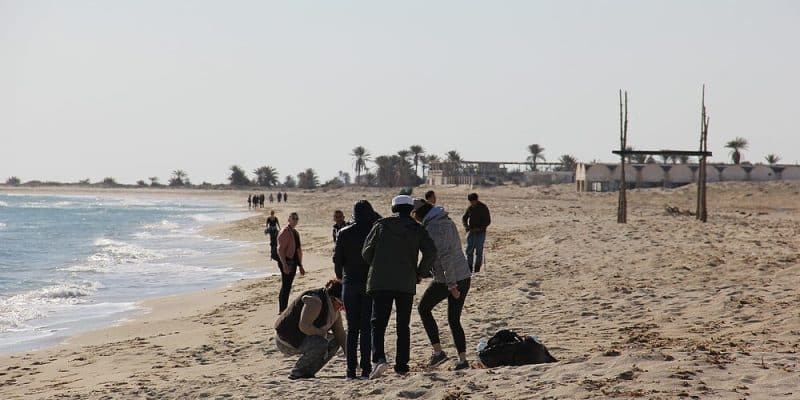The Tunisian branch of the World Wildlife Fund for Nature (WWF) is launching "Adopt a Beach", an initiative to combat plastic pollution on the Tunisian coast. The project will create an integrated national platform to measure the level of pollution on beaches.
An initiative will support the fight against plastic pollution in coastal areas in Tunisia. Called “Adopt a Beach”, the project was launched on 27 April 2023 by the Tunisian branch of the World Wildlife Fund (WWF). The Audemars-Watkins Foundation will finance the activities planned under this initiative, in partnership with WWF Hellas Greece and WWF Turkey.
Led by Tunisian youth, the “Adopt a Beach” project will be implemented on two levels, namely the collection of data on plastic waste (quantity and quality), and the collection of this waste on the beaches.
A platform to measure marine pollution
According to a survey carried out in 2022 by the Tunisian Ministry of Health’s Special Unit for Sea Water Monitoring, 71% of the 539 beaches in Tunisia, from Tabarka to Ben Guerdane, have good water quality. This means that 30% of the country’s beaches are concerned by the “Adopt a Beach” initiative. The Special Unit adds that 21 of these beaches have been banned from bathing since 2022.
In terms of waste data collection, WWF will train participants on the proper monitoring procedure to be used. They will also be educated on the dangers of using plastic to act as a relay once on the ground, as well as on sustainable waste management alternatives.
Read Also – TUNISIA: Tinja joins WWF initiative to reduce plastic pollution
“An integrated national platform will be created to record plastic pollution on beaches with the participation of active citizens. The platform will connect participants to the magnitude of the problem and motivate them to change their individual behaviour regarding plastic use,” says WWF Tunisia. The North African country’s government and organisations should use this data for decision-making on plastic waste management, as well as for the implementation of projects in Tunisia.
Inès Magoum







